HTC One A9 vs HTC One M9
Can HTC's new contender top its old flagship?
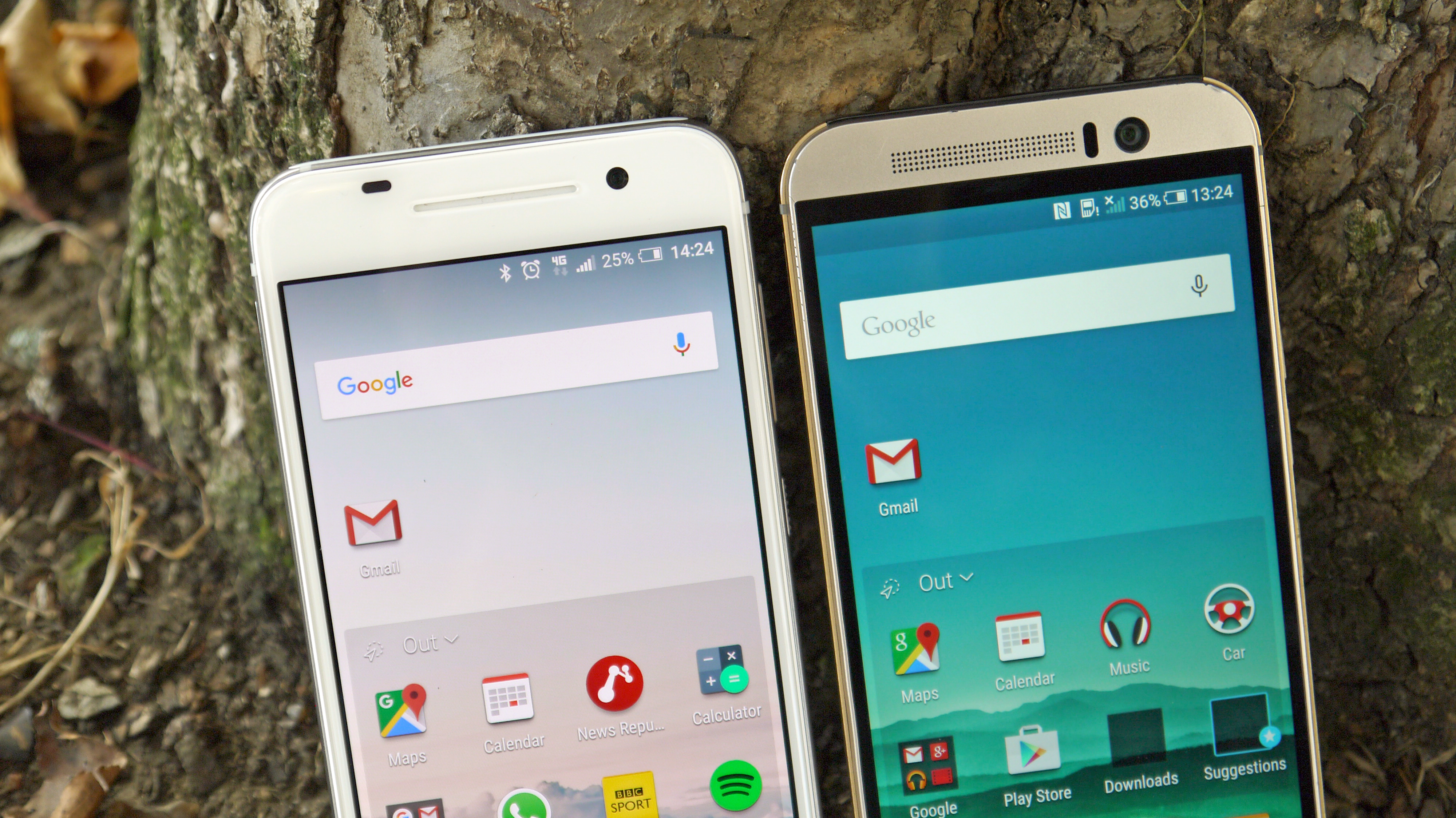
Sign up for breaking news, reviews, opinion, top tech deals, and more.
You are now subscribed
Your newsletter sign-up was successful
Earlier this year HTC released the HTC One M9, a gorgeous smartphone with a metal unibody. Now the company is back with a new phone dubbed the HTC One A9 and it's still packing strong design language, and is every bit as metal.
The name is also similar, but there are a lot of differences between these phones, from the processor, to the camera and beyond. Here's what you need to know.
Design
The HTC One A9 has a slim metal shell, with dimensions of 145.75 x 70.8 x 7.26mm. It's not entirely dissimilar to the metal-clad HTC One M9 and both phones have antenna lines running across the back, but the One M9 is a lot thicker at 144.6 x 69.7 x 9.6mm.
That extra thickness allows the back of the older phone to curve though, so it can sit comfortably in your hand.
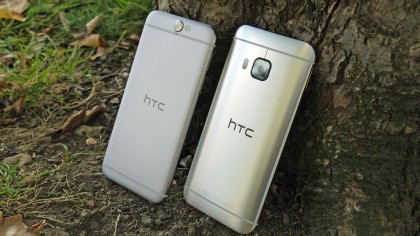
There's more difference round the front, where the HTC One M9 has dual BoomSound speakers taking up space above and below the screen. The HTC One A9 doesn't have those but it does have a fingerprint scanner under the display, while the front of the M9 is a button free zone.
Both phones look distinctly stylish, but with its rounded shape the M9 is to our eyes a little nicer, though also chunkier.
Display
On paper there's nothing to choose between the screens on these two phones, as both have a 5.0-inch 1080 x 1920 display. They even have similar levels of protection, with Gorilla Glass 4 keeping them safe from scrapes and scratches.
Sign up for breaking news, reviews, opinion, top tech deals, and more.
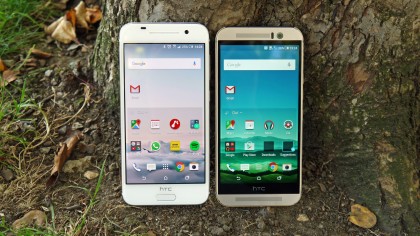
We found the screen on the HTC One M9 to generally be pretty good, but sometimes a little dark, and with the Full HD Super AMOLED screen on offer, the One A9 is a much more impressive display.
Colors look richer, the contrast ratio is much improved and, generally, it's a nicer phone to use when watching Netflix, browsing the web or just looking at pictures you've just taken from the phone.
Power and performance
The HTC One A9 has an octa-core Snapdragon 617 processor with four cores running at 1.5GHz and the other four at 1.2GHz.
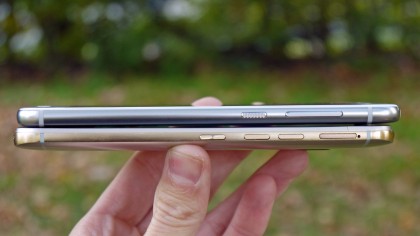
The HTC One M9 on the other hand has an octa-core Snapdragon 810 chip, with four cores clocked at 2.0GHz and the remaining four at 1.5GHz. So it should be a little faster than the A9, though both are backed up by 3GB of RAM.
They also both come with a maximum of 32GB of storage and a microSD card slot, but the HTC One A9 has the edge here as it supports cards of up to 2TB, while the HTC One M9 tops out at 128GB.
That being said, HTC is splitting its strategy with the internal capacity of the One A9 - as well as the RAM. Asia will get both 16GB and 32GB variants of the phone, with 2GB and 3GB of RAM respectively, but the UK will only get the former, with the US being 'stuck' with the higher-spec model.
Camera
There's a 13MP snapper on the back of the HTC One A9, complete with optical image stabilisation and support for filming video in 1080p. The HTC One M9 doesn't have optical image stabilisation but it ups the megapixels to 20.7MP and the video resolution to 2160p.
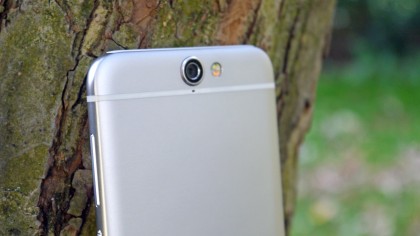
The M9's camera is highly competent, but not quite a rival for the best out there. As the HTC One A9 isn't quite a flagship we wouldn't expect its camera to be among the best either, but it does offer a decent performance in our early testing - bringing it alongside the impressive latest slew of Motorola phones, for instance.
Round the front both phones have UltraPixel snappers adept at capturing lots of light, so you should be able to take decent shots even in dim environments.
James is a freelance phones, tablets and wearables writer and sub-editor at TechRadar. He has a love for everything ‘smart’, from watches to lights, and can often be found arguing with AI assistants or drowning in the latest apps. James also contributes to 3G.co.uk, 4G.co.uk and 5G.co.uk and has written for T3, Digital Camera World, Clarity Media and others, with work on the web, in print and on TV.